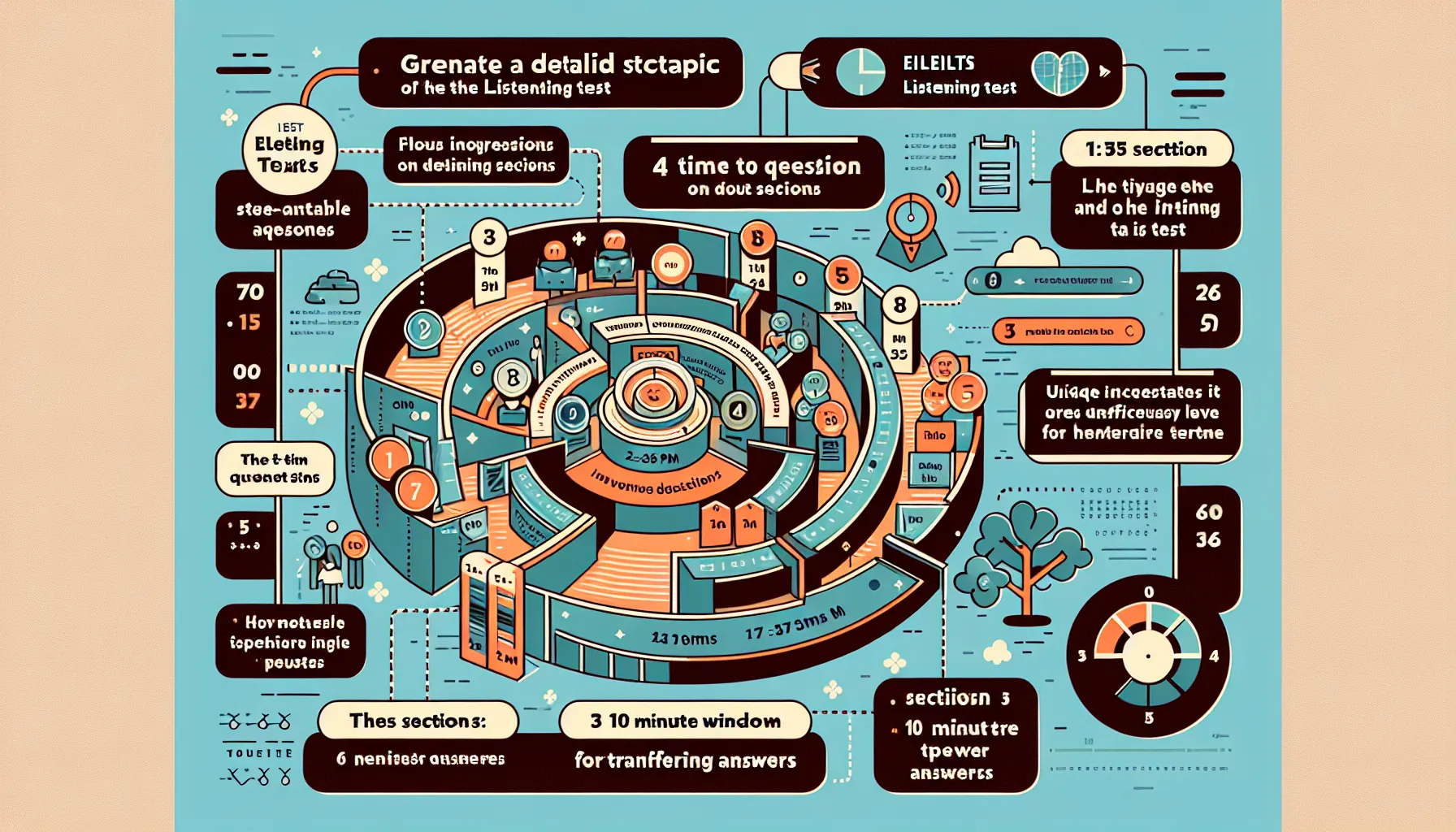Understanding the IELTS Listening Test
The IELTS Listening test is a crucial component of the IELTS exam, assessing your ability to understand spoken English in various contexts. To improve your score quickly, it’s essential to grasp the test format and develop effective strategies. The test consists of four sections, each progressively more challenging, and lasts for about 30 minutes.
Key Features of the IELTS Listening Test
- Four sections with 10 questions each
- Various question types (e.g., multiple choice, matching, form completion)
- Recordings played only once
- 10 minutes at the end to transfer answers to the answer sheet
Understanding these features will help you prepare more effectively and boost your confidence on test day.

Effective Strategies to Boost Your Listening Score
1. Familiarize Yourself with Different Accents
IELTS Listening tests feature a variety of English accents, including British, American, Australian, and others. Expose yourself to these accents regularly through podcasts, news broadcasts, and online resources.
Practical tip: Listen to BBC World Service, NPR, or ABC Radio for at least 30 minutes daily to train your ear to different accents and speaking styles.
2. Practice Active Listening
Develop the habit of predicting what you’re about to hear based on context clues. This skill is crucial for anticipating answers and staying focused during the test.
Exercise: While listening to English conversations or monologues, pause periodically and try to predict what will be said next. Then, resume and check if your predictions were correct.
3. Improve Your Note-Taking Skills
Efficient note-taking is essential for capturing key information quickly. Focus on jotting down main ideas, numbers, and specific details.
Technique: Use abbreviations and symbols to save time. For example, use “&” for “and,” “w/” for “with,” and “+” for “increase” or “more.”
4. Enhance Your Vocabulary
A strong vocabulary is crucial for understanding context and nuances in spoken English. Focus on words and phrases commonly used in academic and professional settings.
Daily practice: Learn 5-10 new words each day, focusing on their pronunciation, meaning, and usage in context. Use flashcards or vocabulary apps to reinforce your learning.
5. Practice with Past IELTS Papers
Familiarize yourself with the test format and question types by practicing with official IELTS past papers. This will help you understand the pacing and difficulty level of the actual test.
Recommendation: Complete at least one full Listening test under timed conditions each week, gradually increasing the frequency as your test date approaches.
Advanced Techniques for Maximizing Your Score
1. Develop Your Concentration Skills
The IELTS Listening test requires intense focus for about 30 minutes. Improve your concentration through mindfulness exercises and targeted listening practice.
Exercise: Practice focused listening with increasing durations, starting from 5 minutes and gradually working up to 30 minutes without distractions.
2. Master Paraphrasing and Synonyms
IELTS Listening often uses paraphrasing and synonyms to test your understanding. Train yourself to recognize alternative ways of expressing the same idea.
Practice method: Listen to short audio clips and try to restate the main ideas using different words. Compare your paraphrases with the original text to improve accuracy.
3. Improve Your Spelling and Numbers Recognition
Many test-takers lose points due to spelling errors or misheard numbers. Pay special attention to these aspects during your practice sessions.
Tip: Create a list of commonly misspelled words and practice writing them correctly. For numbers, focus on distinguishing between similar-sounding figures (e.g., 13 and 30, 14 and 40).
4. Utilize the Preview Time Effectively
Before each section, you have time to preview the questions. Use this time wisely to anticipate the type of information you need to listen for.
Strategy: Quickly read through the questions, underlining key words and predicting possible answers. This primes your brain to catch the relevant information when you hear it.
Common Pitfalls to Avoid
- Don’t panic if you miss an answer: Stay focused and move on to the next question.
- Avoid leaving answers blank: Make an educated guess if you’re unsure.
- Don’t get distracted by unfamiliar words: Focus on understanding the overall context.
- Don’t write your answers in capital letters: Use lower case to avoid potential marking issues.
Next Steps: Creating a Personalized Study Plan
To see rapid improvement in your IELTS Listening score, create a structured study plan tailored to your needs:
- Assess your current level with a practice test
- Identify your weaknesses (e.g., specific question types, accents, or topics)
- Set realistic goals for improvement
- Allocate daily practice time, focusing on your weak areas
- Regularly review your progress and adjust your plan as needed
Remember, consistent practice and targeted strategies are key to improving your IELTS Listening score quickly. Stay motivated, track your progress, and don’t hesitate to seek help from IELTS tutors or study groups if you need additional support.
By following these strategies and maintaining a disciplined approach to your IELTS Listening preparation, you can significantly improve your score in a short period. Remember that progress may vary for each individual, so stay patient and persistent in your efforts. Good luck with your IELTS journey!